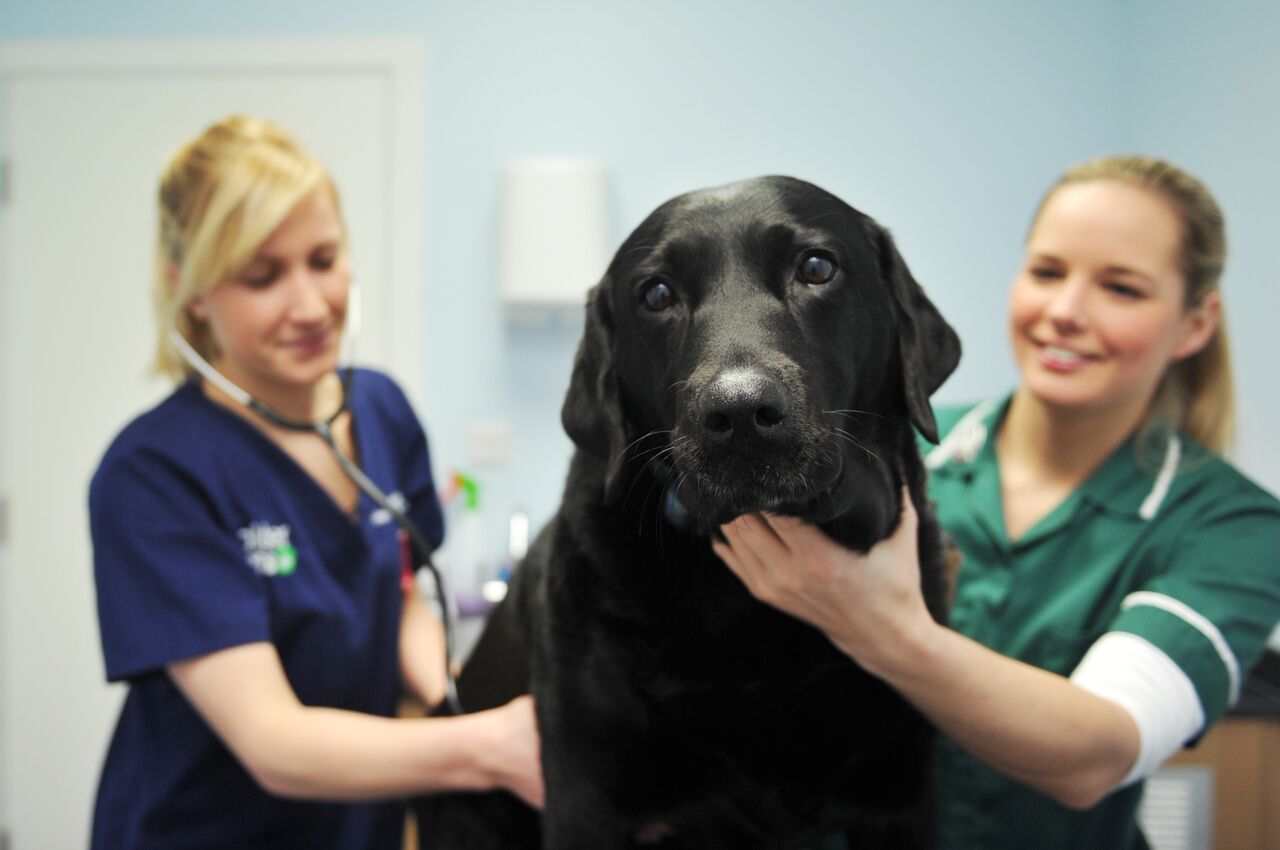
There has been an increased number of cases of "Kennel Cough" in the West and South Yorkshire region this winter. Find out more about Kennel Cough and prevention for your dog.
The Cause
Canine infectious tracheobronchitis or Kennel Cough as it more commonly known, is a common upper respiratory tract infection in dogs. Just like a human cold, it is caused by a variety of bacteria and viruses, and is highly contagious. In fact, the name ‘”Kennel Cough” was coined because it is so easily spread amongst dogs in shelters or close living spaces.

The most common cause is a bacterium called Bordetella bronchiseptica. Less commonly, it can be caused by viruses such as parainfluenza. Sometimes the virus is the initial cause, then the bacteria invade the airways and take advantage of the already damaged respiratory tract. In other cases, bacteria infect first, then the virus come along and do even more damage.
The infection of this canine cough is spread through airborne droplets from other dogs coughing or sneezing in close proximity. Dogs catch Kennel Cough when they inhale bacteria or viruses into their respiratory tract, causing inflammation of the larynx (voice box) and trachea (windpipe). The virus can also be spread through contaminated surfaces. Factors that can increase the risk of developing Kennel Cough are:
- Exposure to crowded or poorly ventilated conditions, such as in kennels and rescue centres
- Large numbers of dogs socialising together e.g. at dog training, agility, with dog walkers or house sitters
- Cold temperatures
- Exposure to dust or cigarette smoke
- Travel-induced stress
Symptoms
Symptoms usually start within 3 and 10 days of exposure. The classic symptom is a persistent dry hacking cough, like a goose honk. Often people describe it as though their dog is choking or “going to bring something up”.
Some dogs have a reduced appetite if they have a fever, or may have other symptoms such as sneezing, a runny nose or discharge from their eyes. Although Kennel Cough can sound terrible and the cough can be very forceful, even causing them to bring up phlegm, most of the time it is not a serious condition.
Treatment
Most cases of Kennel Cough will resolve without treatment, however, sometimes anti-inflammatories, antibiotics and/or certain cough suppressants are given to speed the recovery and minimise symptoms. Please always check with a Vet and never self medicate using human drugs.
As Kennel Cough is highly contagious to other dogs, it is advised that you keep your dog away from other dogs for around two weeks, but this can vary depending on the severity of the infection.
Generally dogs recover completely within three weeks, although can be longer in older dogs, puppies or sick patients. Ongoing kennel cough can occasionally lead to chest infections or pneumonia, so if the symptoms worsen or are not resolving, make sure you take your dog back to see the Vet.
Prevention
If you are worried about kennel cough, especially during the winter months, you can take precautions.
There is an annual intra-nasal vaccine (a spray administered via your dog’s nostril) against Bordetella. Like the “flu jab” for people, none of the vaccines available can guarantee protection against infectious tracheobronchitis (Kennel Cough), because it can be caused by many difference bacteria and viruses.
However, as a preventative measure, this vaccine provides your dog with the best protection possible for 12 months, to try and protect your dog from getting Kennel Cough and also to lessen the severity of symptoms if they were to get it.
It is also important to mention that the Kennel Cough vaccine cannot treat an active infection. Therefore, if you suspect your dog has kennel cough, it is advised you take your dog to see the Vet.


News